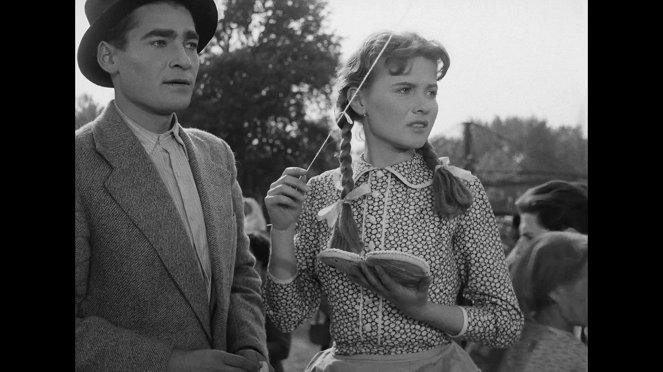Réalisation:
Zoltán FábriPhotographie:
Barnabás HegyiMusique:
György RánkiActeurs·trices:
Mari Törőcsik, Imre Soós, Ádám Szirtes, Béla Barsi, Manyi Kiss, Gyula Bakos, Antal Farkas, József Juhász, Flóra Kádár, Ervin Kibédi, Mária Kovács (plus)Résumés(1)
Dans la Hongrie des années 1950, Mari est contrainte de suivre son père qui souhaite quitter la coopérative communiste. Elle se refuse néanmoins à laisser derrière elle son grand amour, Maté, pour épouser un paysan selon la volonté de son père. Par son succès international et son esthétique révolutionnaire, Un petit carrousel de fête marque la renaissance du cinéma hongrois dans les années 1950. (Clavis Films)
(plus)Vidéo (2)
Critiques (1)
This 1950s village drama tells a traditional love story of two young people whose union is not to this around them. The suggestive consuming atmosphere makes you forget the second storyline in which the main character's father joins the cooperative. Among the film's highlights are the meeting of the young people at the fair and their jointly rehearsed dance that precedes their wedding. The delicate emotions expressed on the face of debutant Mari Töröcsik contrast sharply with the raw environment in which her protagonist lives. Imre Soós, on the other hand, forms a decisive solid element in the young couple. It may be symbolic in retrospect that the then-promising Töröcsik is still acting today, both domestically and abroad (for example in Szabó's Sunshine), but this was Soós's penultimate film and he died immediately afterward.
()


